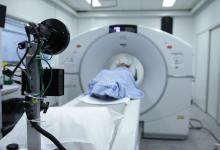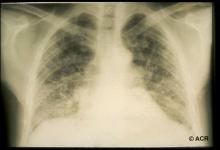Toxoplasma Infections in the Immunosuppressed Save

In the USA, toxoplasmosis is the second leading cause of foodborne illness–related death and hospitalization, with >300 deaths and 4000 hospitalizations each year [2]; 4800 people develop visual loss yearly secondary to the parasite. Cats, humans, and other warm-blooded animals, become hosts after being infected by ingestion of food or water contaminated by cat feces or by consumption of meat containing toxoplasma cysts.
The immunocompetent host may experience a self-limiting febrile illness, but in the immunocompromised, the infection can be devastating, with eye or brain involvement or disseminated infection. Infection during pregnancy can result in congenital malformations or miscarriage and T. gondii seropositivity. Certain strains of toxoplasmosis may cause more severe illness even in immunocompetent hosts. At-risk individuals includes those immunosuppressed during solid organ or stem cell transplant or advanced HIV disease and patients undergoing immunosuppressive treatment for inflammatory disorders, including treatment with anti-TNF drugs and other biologic immunosuppressive agents. In the immunosuppressed, toxoplasma may present as CNS or ocular infections, myositis or myocarditis.







If you are a health practitioner, you may Login/Register to comment.
Due to the nature of these comment forums, only health practitioners are allowed to comment at this time.